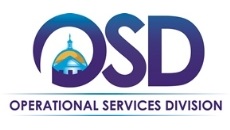- Operational Services Division
OPINION | Nov. 13, 2023 • Stephen Goldsmith
Throughout my 30 years in local government I consistently wrestled with procurement reform, as it is an area that — maybe more than any other — illustrates the famous complaint about “good people in bad systems.” Too often procurement focuses on the wrong standards and manages those good people’s work with insufficient access to important information. Recently I was reminded of those experiences when talking about procurement modernization with Gary Lambert, Massachusetts’ assistant secretary for operational services.
For example, when I was mayor of Indianapolis and working alongside solid waste and street-crack-sealing field workers, I was amazed at the quality of suggestions they had about how to improve the specifications and design of the equipment they used. Sometimes problems that might seem small to others loomed large for them, such as steps on the trucks that were six inches too tall or how a critical part of pavement-heating equipment was designed in a way that slowed work and increased expense.
In another instance, while serving as deputy mayor for Mike Bloomberg in New York City, several times a week I would convene small group meetings of neighborhood leaders. During one such session, a participant pointed outside at the absence of work at a park that was closed during promised construction. When I inquired with the procurement team and city construction management officials about the problem, I discovered that they had twice picked the lowest-bid contractor for the park work, and both times the selected vendor could not finish the job according to specifications. This experience led directly to a change in New York state law from requiring lowest bid to best value as the criterion.
Lambert has a reputation for running a top-flight procurement shop that provides services not only to the state government but to hundreds of Massachusetts cities and towns as well, and I wanted to hear how he deals with the intersection of issues like cost, best value and customer feedback. Of course, procurement in Massachusetts includes standard terms and conditions, but for Lambert “when you boil it down, at its core, the goal is a fair, open, competitive process that provides best value by solving the business needs of our public customer. And for that customer sometimes price is most important, but other times it’s value to the constituent or some other need.” However, capturing customer views and business needs along with listening to vendors, with only 22 staff to handle over $2 billion in purchases from 1,400 vendors, requires novel approaches.
With tools created by longtime procurement expert David Yarkin through his venture called Procurated, Lambert broadly solicits feedback about suppliers, requesting information from those having real-life experience with the vendors. In Lambert’s words, “If you're asking about waste management, you want to ask the person at the state park who goes out every day and sees if the bin has been emptied or not. Not the manager of state parks who's sitting in an office in Boston who isn't out in the field every day.” This process of collecting end-user suggestions and satisfaction ratings, Lambert says, is designed to help the “customer who actually has front-line responsibility to the constituent to do a job better, faster, easier and hopefully cheaper than it would have been if we didn't listen to them.”
The goal is to create a mechanism to capture inbound unsolicited comments as well as formalizing a comprehensive solicitation process. And for this to work, Lambert notes, the supplier must trust that the reviews are legitimate and tied to someone who worked with the supplier. So responses are verified against state data to show that the public employee’s review was authentic and, where applicable, that the commenter has used the equipment or services.
For this feedback to be meaningful, the state needed to take a broader view of the responsibilities of contract management than a simple compliance review. Contract management now means continuous improvement because now vendors see and respond to users. Most government vendors want to increase customer satisfaction, and the transparent compilation of the comments and ratings facilitates this continuous-improvement cycle.
The responses also provide a mechanism for suppliers to see concerns and to share ideas. The suppliers receive much more usable information, and at a granular level. As Yarkin says, “Even if the news isn't good, even if someone's raising their hand and saying, ‘We're having a problem here,’ now issues can be dealt with when they happen in a very matter-of-fact way. Suppliers like being able to solve the problems early on. And this performance information then becomes part of the development process for future contracts.”
And, importantly, the state’s new approach is transforming the once one-sided relationship between the central procurement office and the agencies it serves. When issues arise in the field, as they inevitably do, procurement can see them, raise them with the suppliers and solve problems for its internal customers.
Far too often procurement centers simply on strict compliance with technical procedures. Massachusetts’ approach shows how to manage acquisitions in a way that guarantees integrity through openness and fair competition, producing better results through transparency, feedback and concern about the user coupled with constructive participation with suppliers.
Governing’s opinion columns reflect the views of their authors and not necessarily those of Governing’s editors or management.
